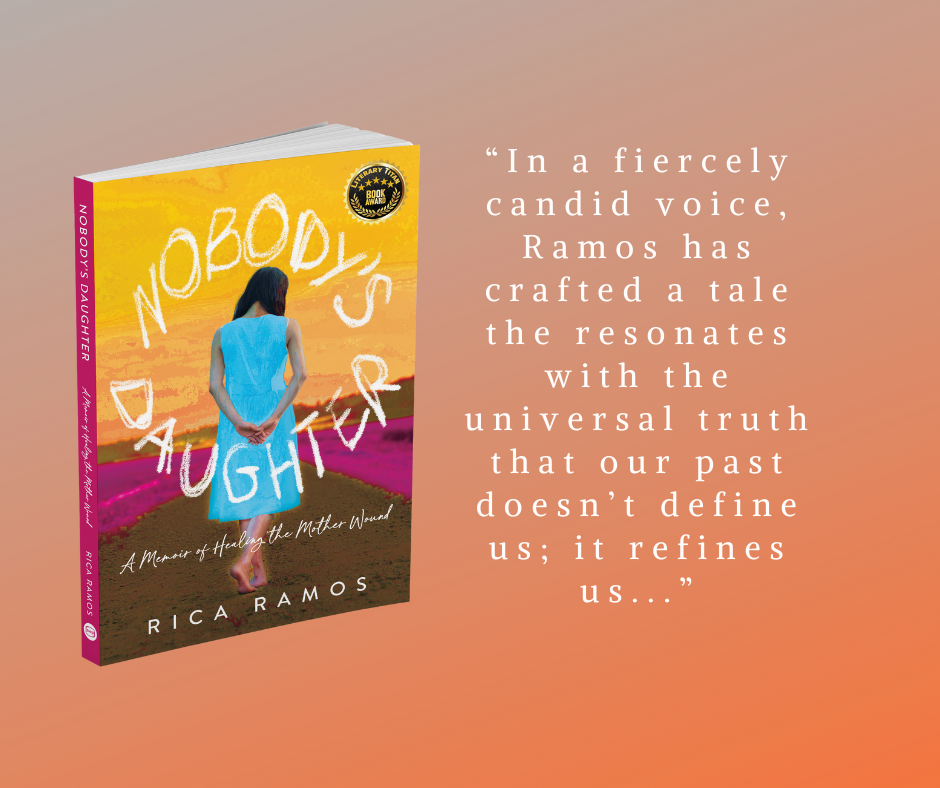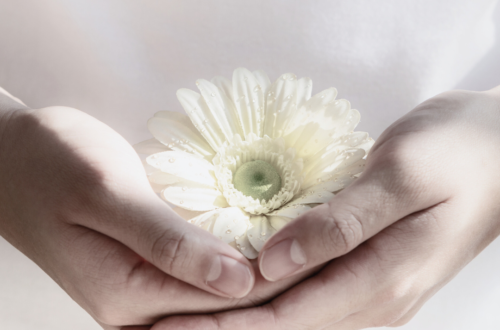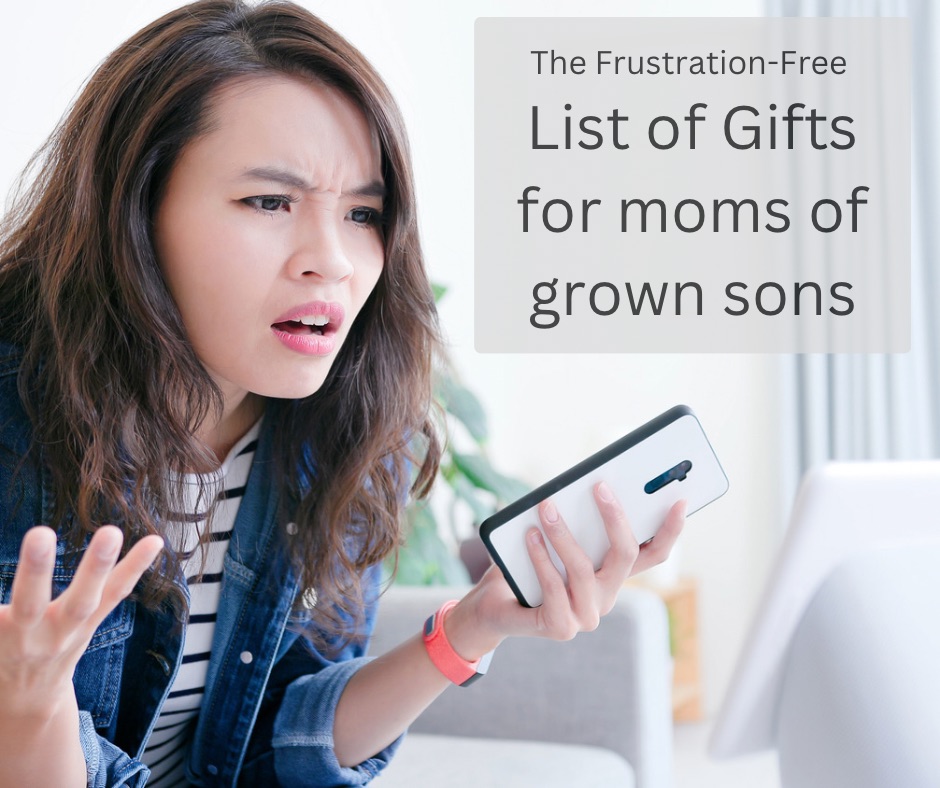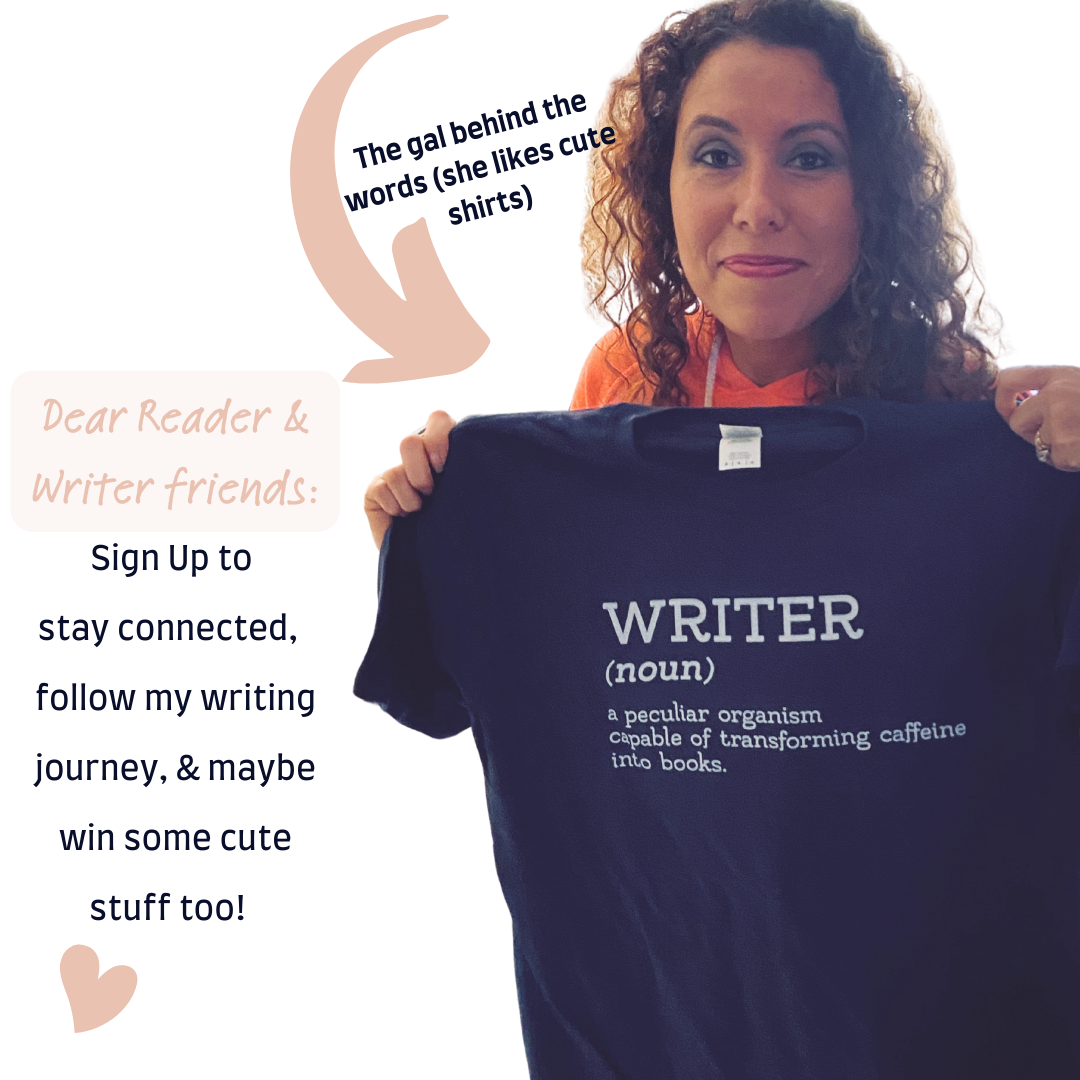
Mother Wound or Mother Blame? Exploring the Cultural Shift Towards Mother-Daughter Estrangement
Mother-daughter estrangement is trending, and it begs the question: mother wound or mother blame? It took me more than 40 years to find an autonomous path. Bearing the burden of devotion to my mother made it difficult for me to detach without shame. Therefore, writing my mother wound book was initially inconceivable. Certain feelings offended my mother, and had therefore been “off limits.” No matter how I’d attempted to have meaningful discussions with her throughout the years, she always reacted defensively.
My truth was a flame in a room soaked in gasoline. To acknowledge it felt reckless and irresponsible, like an act of betrayal.
One of the things I feared when I published Nobody’s Daughter (note, there were many fears), was creating a one-sided narrative that read more like a flashy exposé than the emotional account of a daughter struggling to heal the mother wound. It took careful consideration and self-examination to approach the writing with an open heart. In doing so, I would reveal my mother’s sins as I wrote scenes about our conflict, her willful blindness, and her culpability in the abuse I suffered during childhood and beyond.
When is Mother-Daughter Estrangement a Healthy Option?
As my narrative emerged from the shadowy depths of the mother wound, I began to understand the ways I’d been conditioned to protect my mother, and how doing so had silenced important conversations and critical examination of our mother-daughter relationship. I’d internalized a message, an ideology about mothers as near mythical beings. My mother gave me life, and I’d forever be indebted to her–or so I believed. These statements were the poison that rendered me paralyzed, trapped in a cycle of codependent behaviors.
Through therapy and trauma research, however, I began to see healing as my right–but more importantly, I saw it as my responsibility. In every capacity, role and function of my life, I yearned to create balance and foster inner growth. And so I clung to science and human stories, the wisdom of trauma healers and pioneers including author, Bessel Van Der Kolk, M.D.
“Our capacity to destroy one another is matched by our capacity to heal one another…language gives us the power to change ourselves and others by communicating our experiences, helping us to define what we know and finding a common sense of meaning.”
~ Bessel Van Der Kolk, M.D., author of The Body Keeps the Score
Healing is Our Right and Responsibility: But What About Mother Blame?
I often questioned my intentions, checking and rechecking my thoughts and motives for any signs of mother blame. I wanted, needed, to explore healing honestly. With maturity and compassion, I sought a path not potholed with mother blame. I studied the manifestations of the mother wound and immediately saw how these behavioral patterns had impacted my life and shaped my family history. Within the mother wound, we see the imprint of a disturbing reality.
Here are some of the common signs of the mother wound.
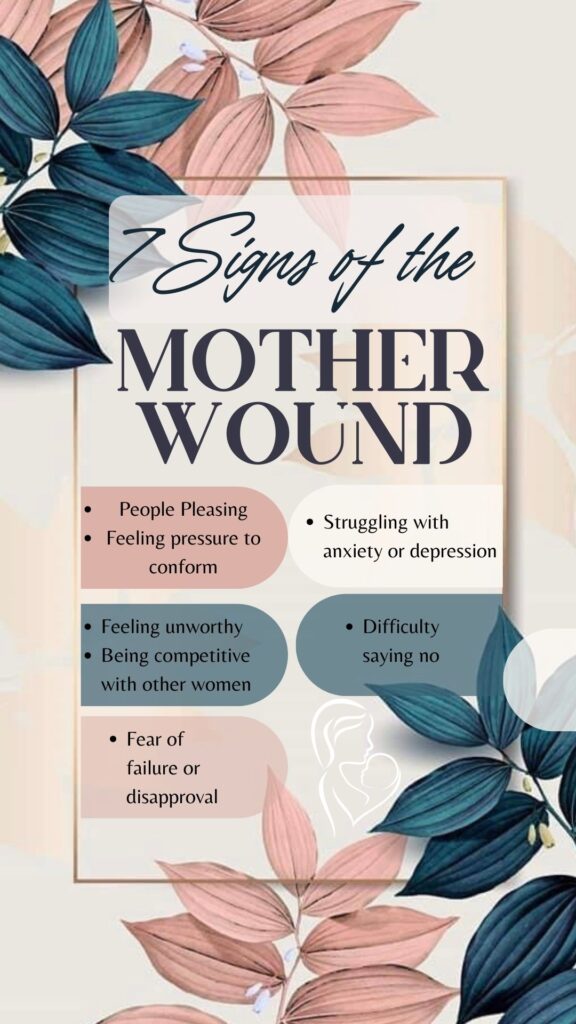
Other signs include:
- Feeling pressure to conform to the cultural standards of womanhood
- Tendency to remain small to avoid conflict, or refrain from speaking up if it will upset others
- Thinking you are innately flawed
- Difficulty setting boundaries
- Consciously or unconsciously striving for or desiring your mother’s approval
- History of eating disorders, anxiety, depression or addiction
Creating Boundaries without Mother Blame
Taking a major step forward, I confronted the cliches and platitudes the world so readily offered me, phrases such as, “Your mom did the best she could with what she had.” Family talked about how young she was, the toxicity of her marriage to my father, and the difficulties she faced. Statements like these, while true, dismissed the depth of my trauma and made me feel unjustified and ungrateful for my mother’s notable “sacrifices.” The fact that she worked hard and made pot roast on Sundays seemed to absolve her of the greater responsibilities to protect and nurture her children. Only after I allowed myself to assess the past critically, without fear of mother blame, was I able to see that my mother’s age, economic status, relationship struggles, character deficits, etc., were not my burden to bear. The truth is, we are all accountable for our own actions and responsible for our individual healing and growth. With this in mind, I was able to create healthy boundaries to protect my heart.
A Cultural Shift: The Mother-Daughter Estrangement Trend
Recently, Oprah released videos and intimate conversations with Brooke Shields about the mother wound, which has led to further exploration and discourse on social platforms. The conversations have mostly been thoughtful or reasonable, but I’ve seen overreactions as well– mothers blindsided by children who suddenly become outraged for seemingly minor offenses.
Who’s right or wrong, and how do we judge pain that isn’t our own? It’s tricky territory.
In terms of estrangement, the pendulum swings in a dangerous direction. I see women touting the “no contact” approach as if it were the ultimate fix for mother-daughter drama.
Kick your mama to the curb. Good vibes only.
Headlines about mother-daughter breakups abound, and it makes me cringe. Whatever the circumstances, mother-child estrangement is always a tragedy to me.
I’m an estranged daughter, but I miss my mother terribly.
Seriously, I really freaking miss her! But for now, this boundary makes good sense. Whether we believe maternal instinct is fact or fallacy, no amount of wishful thinking can manufacture a mother-daughter bond. I’ve come to understand this on a visceral level.
I think about my mother’s witty comebacks throughout the day. Her energy and insatiable creativity that sometimes ends comically –with her lips super glued together or paint stains on her pants. My finger hovers over a text I want to send when nostalgia challenges my sensibilities. I ache to share my life with her. Yet, our separation is essential to my wellbeing.
I applaud Oprah, Brooke and the experts featured in their video interviews. I appreciate their insights, their ability to help women so deftly examine their painful histories. Now more than ever, I see daughters making empowered choices that allow them to thrive. But I also have fears: how many women are now too eagerly abandoning dysfunctional relationships without first taking steps to reconcile?
According to author Rosjke Hasseldine, “there is an alarming increase of young adult daughters cutting off contact from their mothers.” Hasseldine says when she started working as a mother-daughter therapist in the late seventies, estrangement was rare, reserved only for the most abusive relationships. Hasseldine sees today’s estrangement trend as cause for alarm.
No More Pedestals for Moms
I see us all (me included) in the hot seat, and I can only hope daughters and sons are able to view their relationships objectively. If mother-daughter estrangement is on the table, the decision should flow from a place of peace and wisdom rather than resentment or retaliation. In my experience, I needed to feel anger before I could get to a place of acceptance. Anger should come before we make the life-changing decision to go no-contact with our mothers. (Read more on the importance of anger).
My choice to cut ties with my mother was guided by therapy and intense contemplation. I’d exhausted all other reasonable avenues and chose estrangement as an act of self-preservation.
As noted in the last chapter of my mother wound book:
“Mother blame only makes us victims, only prolongs our suffering. But we have the power to create a better life– to make space for love without hatred or resentment. Even if, that sometimes ends in estrangement.”
Nobody’s Daughter: A Memoir of The Mother wound
